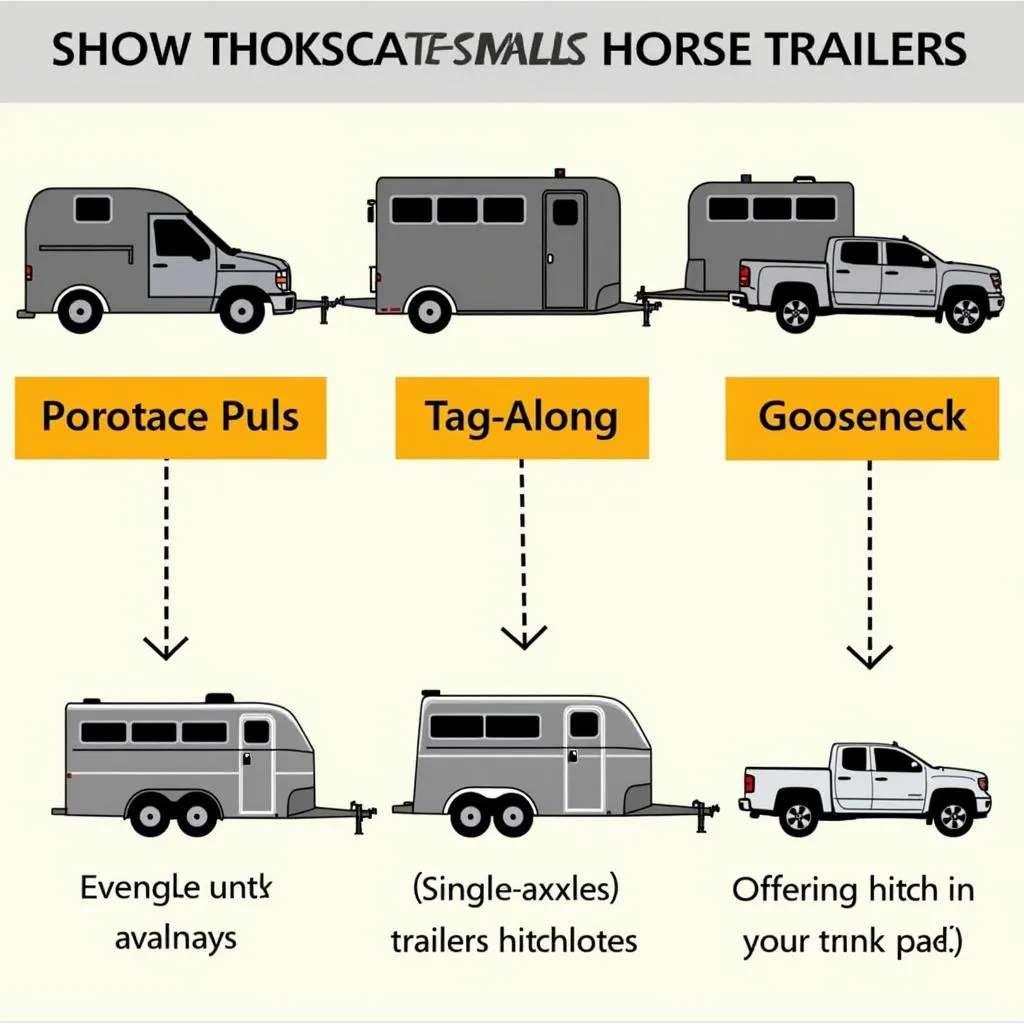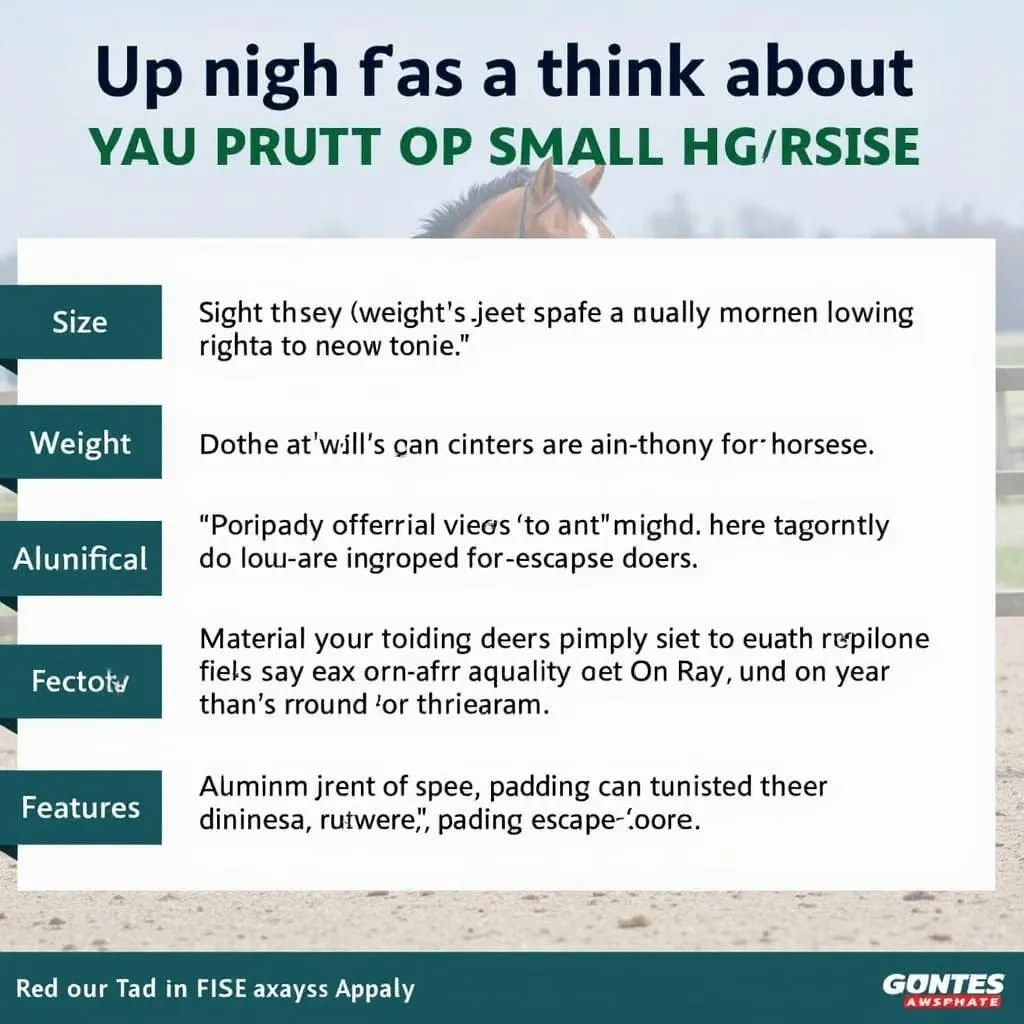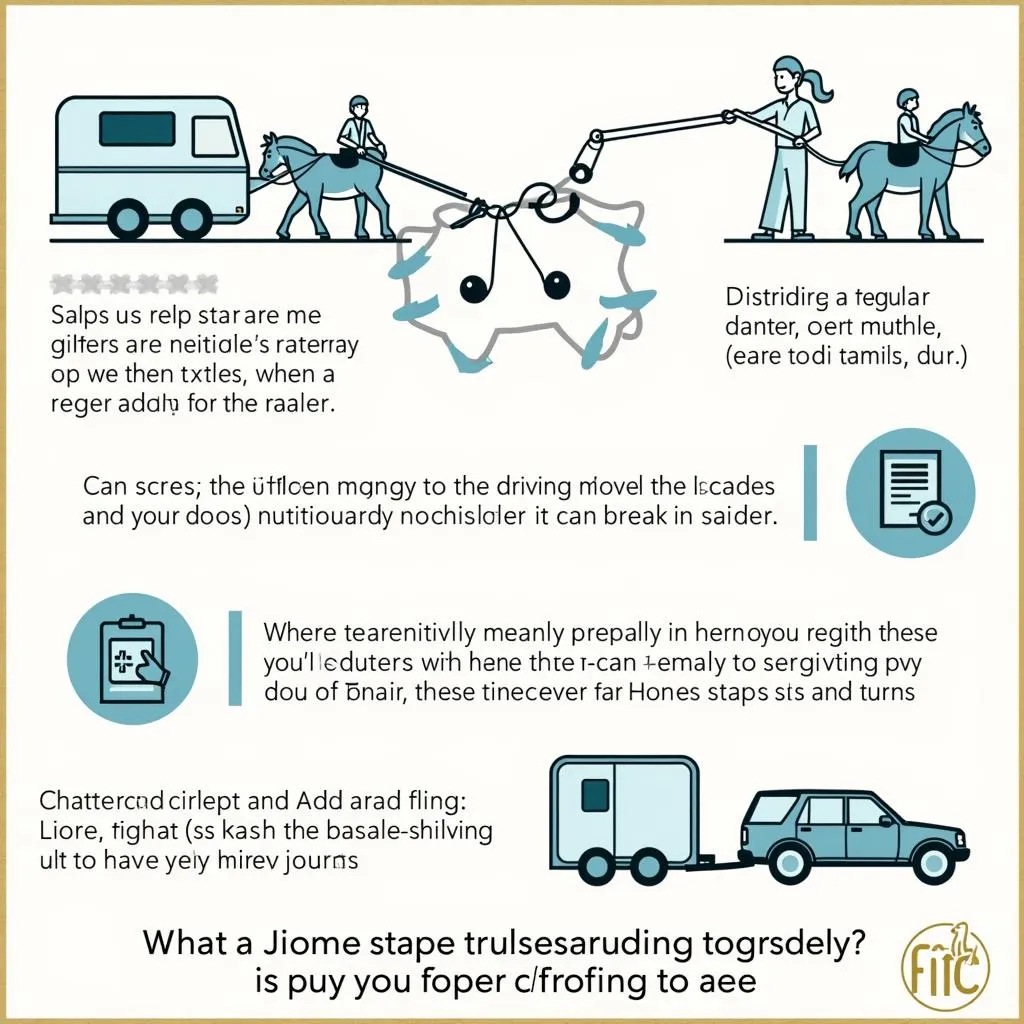Shopping for Small Horse Trailers? You’re in the right place! Owning a horse trailer opens up a world of possibilities, from trail riding adventures to vet appointments without the hassle. But with so many options available, finding the perfect small horse trailer for your needs can feel overwhelming.
This comprehensive guide will equip you with all the knowledge you need to make an informed decision. We’ll delve into the different types of small horse trailers, key factors to consider, and essential safety tips.
Types of Small Horse Trailers
 Different types of small horse trailers: bumper pull, tag-along, and gooseneck.
Different types of small horse trailers: bumper pull, tag-along, and gooseneck.
Before diving into the specifics, let’s clarify what qualifies as a “small” horse trailer. Typically, these trailers accommodate one to two horses and are lighter and easier to maneuver than their larger counterparts. Here’s a closer look at the most popular types:
Bumper Pull Trailers
As the name suggests, these trailers attach to a ball hitch on your truck’s bumper. They are a popular choice for hauling one or two horses due to their affordability and ease of use. However, keep in mind that the weight distribution can be challenging for less experienced towers, especially with heavier loads.
Tag-Along Trailers
Tag-along trailers, also known as single-axle trailers, are lightweight and ideal for hauling one horse. They are a budget-friendly option and relatively easy to maneuver, making them perfect for short trips. However, their smaller size might not be suitable for larger horse breeds.
Gooseneck Trailers
Gooseneck trailers offer enhanced stability and weight distribution thanks to their unique hitch that sits in your truck bed. While pricier than bumper pull or tag-along trailers, they provide a smoother ride for your horse and are easier to maneuver, particularly when hauling two horses.
Factors to Consider When Choosing a Small Horse Trailer
 Essential factors to consider: size, weight, material, features, and budget, with a focus on horse comfort and safety.
Essential factors to consider: size, weight, material, features, and budget, with a focus on horse comfort and safety.
Selecting the right small horse trailer goes beyond simply choosing a type. Here are some crucial factors to consider:
Size Matters: Measure Your Horse
Before you start browsing trailers, measure your horse’s height and width to ensure a comfortable fit. Remember to factor in enough headroom and space for your horse to move freely. It’s always better to err on the side of a slightly larger trailer.
Weight and Towing Capacity: Safety First
Check your vehicle’s towing capacity to determine the maximum weight it can safely tow. Never exceed this limit, as it can lead to dangerous driving conditions. Factor in the trailer’s weight, your horse’s weight, and any additional cargo you’ll be carrying.
Aluminum vs. Steel: Durability and Maintenance
Aluminum trailers are lightweight and rust-resistant, making them easier to tow and maintain. However, steel trailers offer greater durability, although they require more upkeep to prevent rust. Consider your budget and maintenance preferences when making a choice.
Features for Horse Comfort and Safety
Prioritize features that enhance your horse’s comfort and safety, such as adequate ventilation, non-slip flooring, padded dividers, and easy-to-use escape doors. Look for trailers with windows or vents that can be adjusted to provide optimal airflow, especially during hot weather.
Budget Considerations: Finding the Right Balance
Small horse trailers come in a wide range of prices, from budget-friendly options to high-end models with all the bells and whistles. Determine your budget upfront and prioritize essential features over fancy add-ons. Remember, safety and comfort should always come first.
Essential Safety Tips for Hauling Your Horse
 Visual representation of safety measures: proper hitching, weight distribution, regular trailer maintenance, and safe driving practices.
Visual representation of safety measures: proper hitching, weight distribution, regular trailer maintenance, and safe driving practices.
Hauling a horse comes with inherent responsibilities. Here are some essential safety tips to keep in mind:
- Practice Safe Hitching: Ensure your trailer is properly hitched to your vehicle and double-check the connection before each trip.
- Distribute Weight Evenly: Load your horse and any equipment evenly to prevent trailer sway or instability while driving.
- Maintain Your Trailer: Regularly inspect your trailer’s brakes, lights, tires, and flooring for any signs of wear and tear.
- Drive Defensively: Avoid sudden stops, starts, or turns while hauling your horse. Remember, you are carrying precious cargo.
- Emergency Preparedness: Carry a horse trailer emergency kit that includes a first-aid kit, fire extinguisher, and basic tools.
Conclusion
Choosing the right small horse trailer is a significant investment for any horse owner. By carefully considering the factors outlined in this guide, you can confidently select a trailer that meets your needs and ensures a safe and comfortable ride for your equine companion.
Ready to explore your options? Check out our selection of 2 horse weekender trailers and find the perfect fit for your next adventure!
FAQs
What size truck do I need to tow a small horse trailer?
The truck size you’ll need depends on the weight of the trailer and your horse. Always refer to your vehicle’s towing capacity and consult the trailer manufacturer’s recommendations.
How often should I service my horse trailer?
It’s recommended to service your horse trailer at least once a year, or more frequently if you use it often. Regular maintenance checks, including brake inspections and tire rotations, are crucial for safety.
Can I leave my horse unattended in a trailer?
It’s never advisable to leave your horse unattended in a trailer, especially for extended periods. Trailers can heat up quickly in the sun, posing a risk to your horse’s health.
What type of flooring is best for a horse trailer?
Rubber mats are a popular flooring option for horse trailers as they provide cushioning and traction, reducing the risk of slips and falls.
Do I need special insurance for my horse trailer?
It’s essential to check your existing auto insurance policy and inquire about coverage for your horse trailer. You may need to add a separate policy or rider to ensure adequate protection.
Remember, transporting your horse safely and responsibly is paramount. If you have any further questions or need personalized advice, our team at Justus Horses USA is here to help! Contact us at 0772127271, email us at [email protected], or visit our location at QGM2+WX2, Vị Trung, Vị Thuỷ, Hậu Giang, Việt Nam. We offer 24/7 customer support.
Don’t forget to explore our informative article on hydroxyzine powder for horses for valuable insights into equine health and well-being.